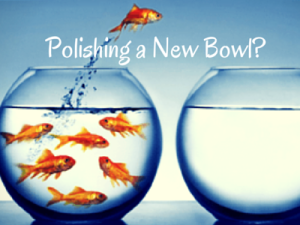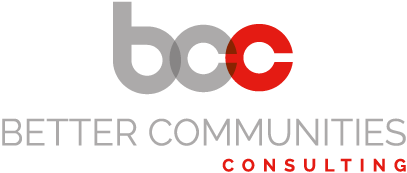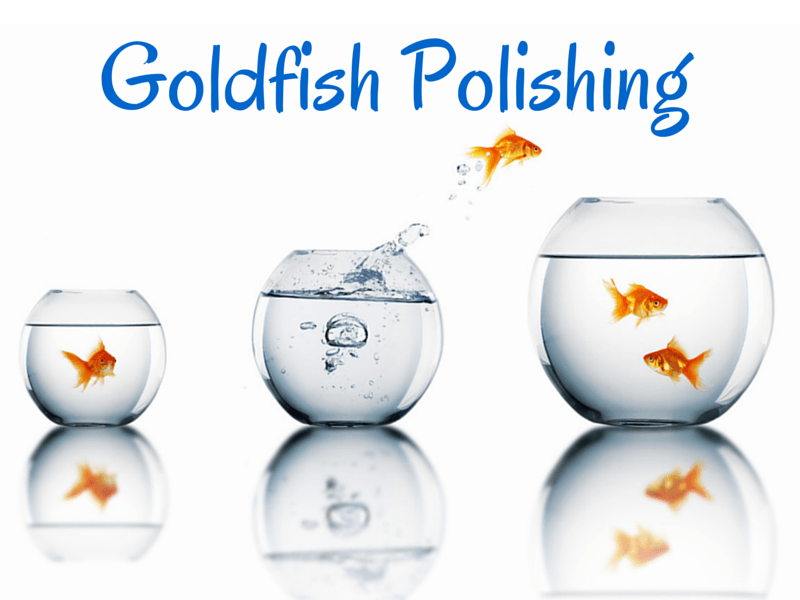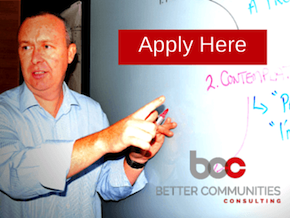Professional Development
I’ve always struggled with Professional Development. For the majority of experiences I’ve had, the take home message has formed the same monotonous tone, “well that was a waste of time!”
Often the title of the training, the glossy brochure and the attendant agenda offer a ‘blanket box’ of wonderful skills and techniques to create organisational (or personal) utopia.
As an emerging Leader in my chosen field, I increasingly became engaged in a series of (increasingly expensive) workshops and courses that only seemed to deaden my expectations and increase my cynicism; simply put, the benefits of the exercise fell far below that of the “Promised Land”. Even when the training was of value, it seems that a few days or week after the event, I had little or no recollection of the content and intended uses of such.
That is not to say that I learnt nothing along the journey.
Stephen Covey’s seventh habit, for example, as described in his famous self-help book and workshop, The Seven Habits of Highly Effective People, is titled “Sharpen the Saw” did make some impact. The metaphor explains an ideology of keeping our tools in optimum condition to promote effective performance. In a world that is constantly morphing and challenging our business structures and models, the ideology has never been more important.
Furthermore, the benefits of keeping those saw teeth sharp must be sustainable and not simply a process of “goldfish polishing”. I took this habit and with great vigour, began the search for the right Saw Sharpener.
 Goldfish polishing,
Goldfish polishing,
…. as defined by one of Australia’s most experienced and influential Organisational Culture experts, Robert Re (an exceptional Saw Sharpener and now my mentor), is the practice of taking the goldfish out of its bowl, giving it a bit of a clean and plopping it back into the same old water, or even if the water has been changed, into an environment that will only temporarily maintain its newly found cleanliness. At the time of polishing our goldfish, we feel a sense of satisfaction; we see the results of our efforts and after returning our fish, move on to our next job. Then, after several days, or a week, our poor little goldfish is again swimming in a pea soup of algae; there is not net gain or change, nothing learned or sustained; status quo.
Goldfish polishing is both wasteful and culturally dangerous for organisations. Rather than establishing a new (or better) regime, standard or skill set within the organisation, it actually has the complete opposite result; at its worst, it can breed complacency and poor performance. It can create a culture that does not recognise or value continuous improvement and allow individuals to fall into the lethargy of complacency. Ideally, professional development creates a new paradigm, a higher standard.
Knowledge is attained, but more importantly, knowledge is sustained. Performance, in the area of the knowledge gained, lifts and over a period of time is embedded as the default or benchmark.
Professional development should never stop at the attainment of knowledge or skills. It should be the initiator for change. It should motivate and stimulate people into improving and sustaining a higher level of performance. It is therefore not unreasonable to expect Professional Development Facilitators and Trainers to deliver on these three areas:
- Knowledge attainment & sustainment
- Performance Improvement
- Performance Sustainability
- ???
The third of these categories is where the real magic happens. This is where value in excellent professional development is found. The question then arises; what is the fourth category?
Anything less than achievement of these deliverables is little more than keeping that goldfish polished.
If you’d like to discover the road to where that magic happens, a place where you won’t find any aquatic life forms, let alone goldfish, visit www.bettercommunities.com.au and take a look at our road map to creating sustainable high performance communities.
Brad Clarke
Latest posts by Brad Clarke (see all)
- Effective Communication Training – please understand me! - November 13, 2014
- The Triple Bottom Line revisited – growing better (business) communities - October 30, 2014
- That which hides behind the KPI’s: Role Clarity - October 24, 2014



Spot on Brad!
I have worked with a lot of organisations that have used PD to fix a perceived competency or skill-set shortage in the staff, but have trouble finding a way to allow those newly motivated (or re-motivated) staff to incorporate their skills into their work upon their return.
Ultimately those staff will find frustration at not being able to implement what they have learned and will move on to another organisation, or stay where they are and suffer poor performance.
It’s a tough challenge for organisations to strike a balance between what works, what will work better, and what doesn’t work any more.
too true Matt, confusion leading to frustration are the first two steps in employee disengagement!
I really like this analogy Brad!
Highlights the importance that any development process needs to be sponsored from the top of the organisation and requires discipline in application when everyone gets back from the course.
I recall many occasions of having “ah moments” at great personal development sessions and then being totally frustrated back at the office watching people revert back to norm in their dirty goldfish bowl environment.
It can actually be very counter productive as it results in top class people (having been enlightened) wanting to find a better goldfish bowl to swim in.
Thanks Richard, those “Ah moments” are so important and so easily lost. being able to embed them into your workplace culture is hugely beneficial and absolutely where the value in effective PD lies. I agree with your comment regarding senior sponsorship; anything other than complete buy-in from the top is the perfect storm of goldfish polishing!
Wow the polished goldfish analogy has been around a long time!! i first came across it in a HR monthly magazine and it reasonated strongly with me and challenged me to think differently about my role as a professional facilitator and developer. I have retold this story so many time and it still holds true to this day 🙂
Thanks Trisha, its amazing how much we either forget or choose to ignore from our past. I believe the creator of this analogy was Dennis Pratt. It s interesting to watch what is happening in the VET sector at the moment. So much waste in a hugely expensive and ineffective sector (yes there are some incredibly talented trainers / facilitators out there).